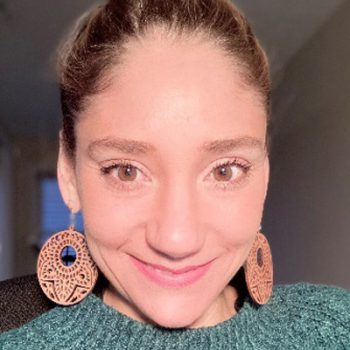When Dr. Adam Moeser and Dr. AJ Robison were invited for a night out, they couldn't see their multi-million-dollar potential. While meeting mutual friends at a local distillery, destiny struck.
As Moeser, a gastrointestinal physiologist specializing in mast cells, described his gene expression and RNA sequencing work, Robison, director of MSU’s Neuroscience Program, couldn't help but be intrigued. "As a neuroscientist, I had never heard of mast cells before," Robison admits. "But when Adam described his research, I knew we had to work together to explore the potential connections between mast cells and the brain."
Previous Research

Dr. Natalia Duque-Wilckens, a former postdoc with Moeser and Robison and now an assistant professor of Biological Sciences at North Carolina State University, led their first investigation into the role of ΔFosB in mast cell function. Her pioneering studies served as the impetus for Robison and Moeser’s current funding and projects.
“She’s a tremendous scientist, and I’m so upset to lose her because she’s so good, she got a job at NC State and runs her own lab now. She’s such a great scientist and a great person. We miss her terribly,” says Robison.
Duque-Wilckens joined MSU in 2018 as a post-doctoral research associate in the College of Veterinary Medicine’s Gastrointestinal Stress Biology Laboratory, where she spent her time researching and mentoring. Her work focused on the impact of early-life adversity and mast cells on neurobehavioral development. She received a NARSAD Fellowship, and in 2021, she won Best Oral Presentation with Dr. Caitlin Thorne at the College of Veterinary Medicine’s Phi Zeta Research Day; in 2022, she won Outstanding Oral Presentation by a Postdoc.
Moeser continued to describe his work and Robison’s ears perked up. He asked Moeser what he thought were the most interesting genes that popped up as regulated in mast cells by activity.
“Adam told me there’s one hit they’re really interested in because it was induced 40-fold by mast cell activation, but it was really obscure. He said, ‘FosB,’” Robison smiles. “It was the weirdest coincidence to find one person on campus who is interested in the gene I’ve been studying for most of my adult life, and we happened to say it to each other.”
That was the beginning of a $2M+ collaboration. In September 2022, the National Institutes of Health funded Robison and Moeser for 5 years to continue previous work on the role of mast cells in stress-associated neurobehavioral changes.
Moeser, Matilda R. Wilson Endowed Chair, director of the Gastrointestinal Stress Biology Laboratory, and professor in the Department of Large Animal Clinical Sciences at the MSU College of Veterinary Medicine, studies mast cells and the role they play in stress-associated disorders. Together, Moeser and Robison are investigating how ΔFosB (read “Delta Fos B”), a transcription factor, moderates mast cell activity. Their findings could lead to therapeutics for diseases associated with mast cell activation like allergy, anaphylaxis, immune problems, inflammation, migraine, and others.
Robison and Moeser want to understand how ΔFosB does what it does. “This is a real challenge,” says Robison. “We know ΔFosB is important in mast cells, but we don’t have a mechanistic understanding. If we artificially create a lot of ΔFosB in mast cells, they become less active, and if we genetically delete FosB from mast cells, the cells are super active.
“So, we know ΔFosB reduces mast cell activity, but there’s a million ways it could be doing that. That’s what we need to figure out.”
Mast cells are Moeser’s specialty, and FosB is Robison’s. "Our collaboration is a testament to the power of interdisciplinary research," says Moeser. "Our work on mast cells and ΔFosB is just one example of how bringing together researchers from different fields can lead to groundbreaking discoveries and advancements in medicine. By working together, we can tackle complex problems that no single discipline can solve alone,” says Moeser. “Because FosB has been shown to be important in the brain, there are potential therapeutics in the future—maybe drugs that we use for allergy could be repurposed and applied to neurobehavioral disorders.”
Whatever the future holds for ΔFosB, Robison and Moeser are focused on their collaboration and collegiality.
“I really like Adam. We bro out and have a really good time, but we also really like doing science together,” says Robison. “It’s one of those fun relationships that makes me glad I have science that brings people together that way.
“A lot of the time, it’s human interactions that make all this stuff possible. It’s having a beer together or going to lunch or a seminar—you have to be in the same room.”
